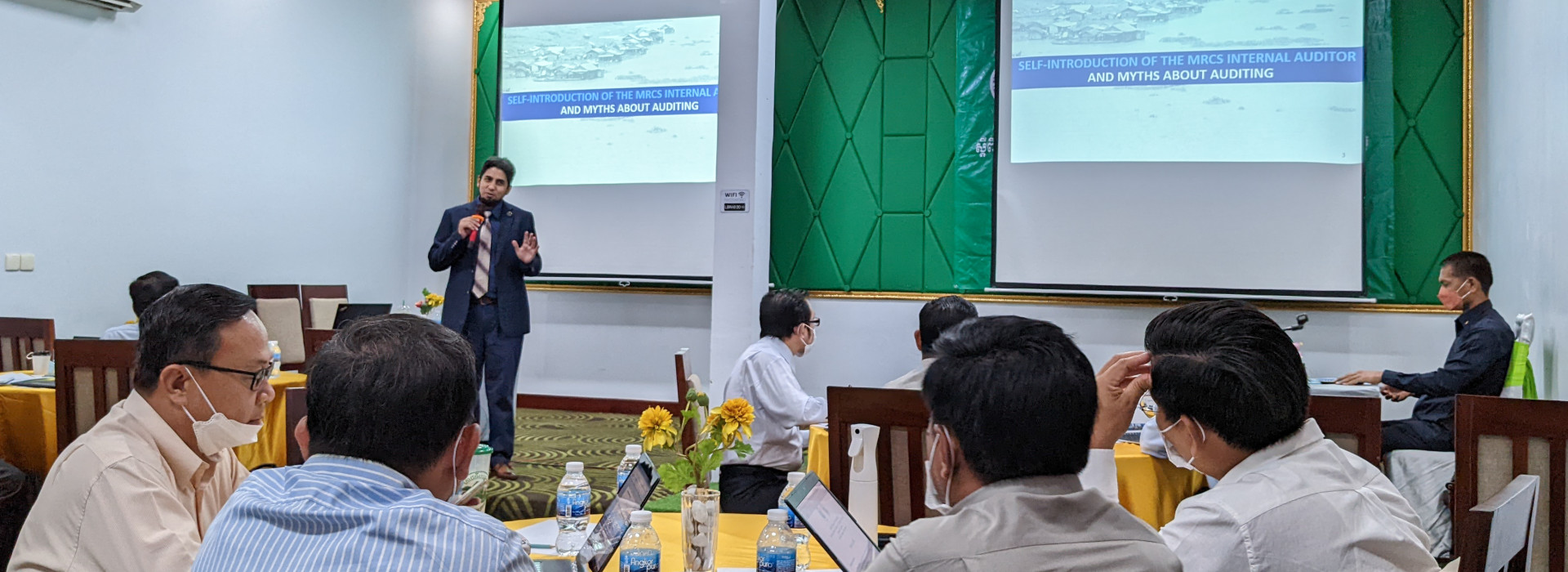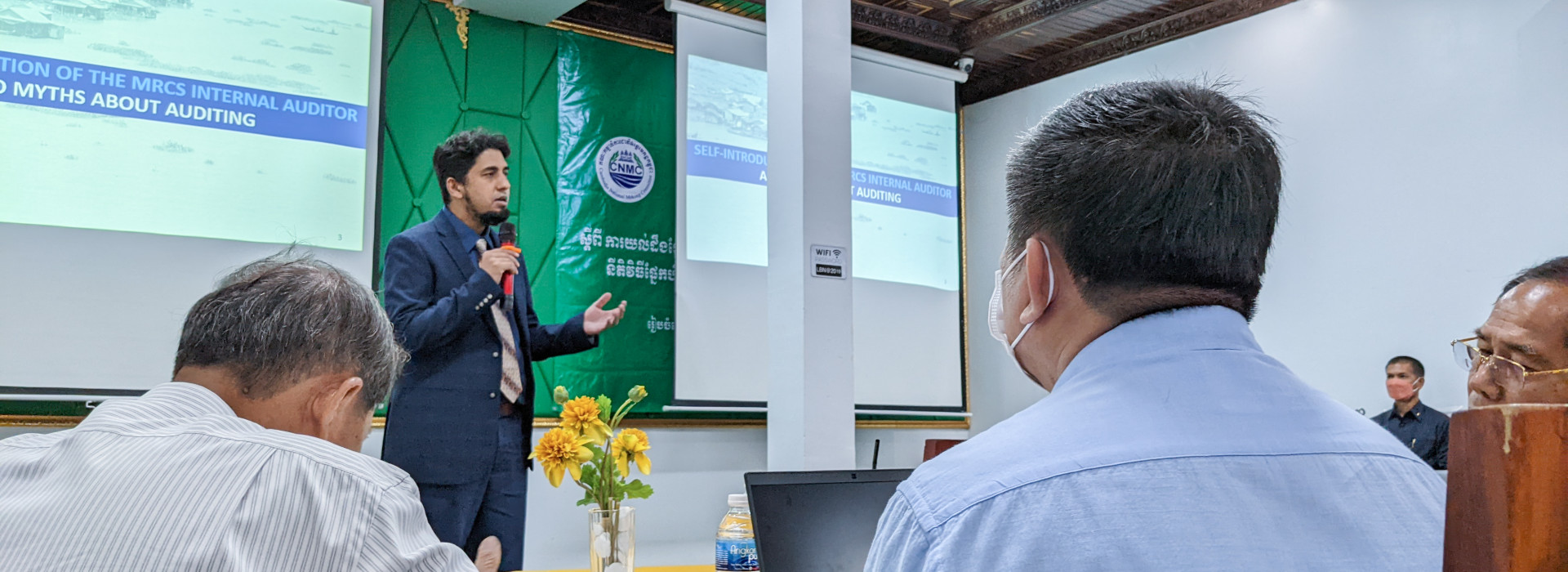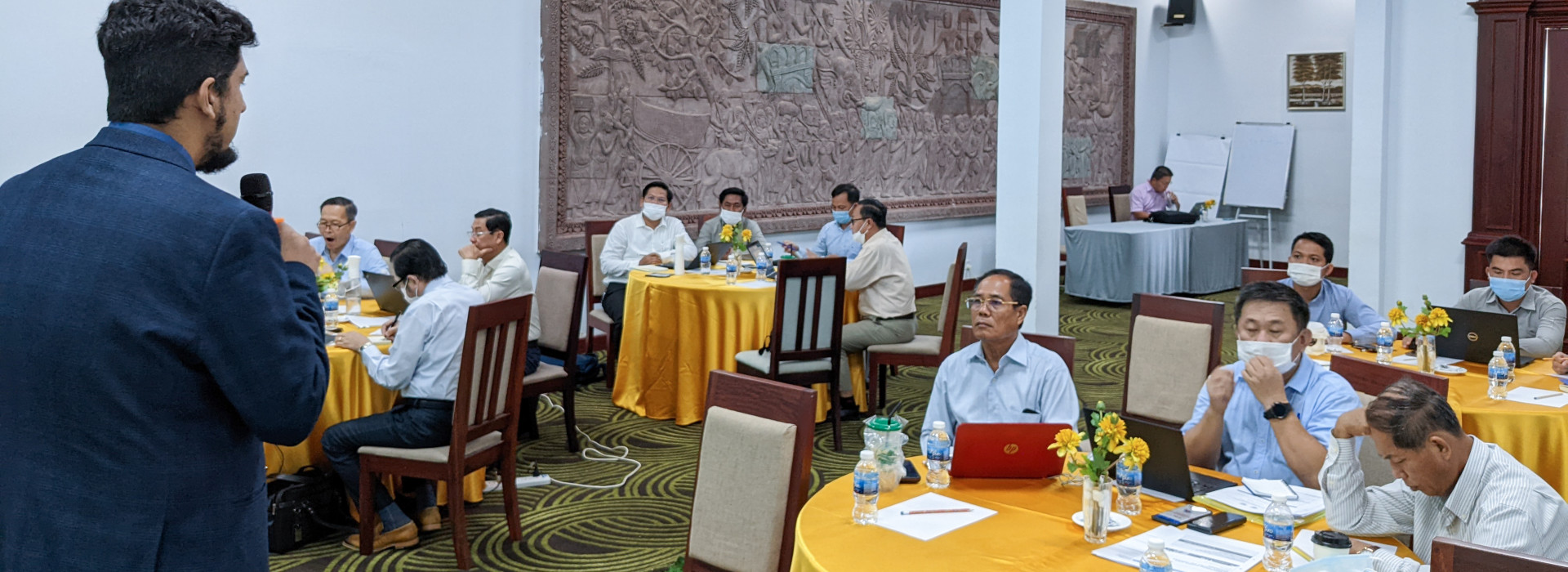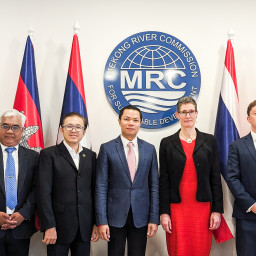New MRC training fosters transparency, accountability and rule compliance
Kampong Cham Province, Cambodia, 23 May 2022 — The Mekong River Commission (MRC) has begun to entrench new internal rules to promote transparency and accountability – aimed to reassure both national and international donors – with a series of training sessions in each of the four MRC Member Countries.
As the world today is more regulated and scrutinized than ever before, every organization must act to protect its integrity and operations, especially from fraud and corruption, says Umair Javed Imam, the independent Internal Auditor for the MRC.
Tailored to officials from the National Mekong Committee Secretariats of Cambodia, Lao PDR, Thailand and Viet Nam, the trainings strive to raise awareness on how to prevent corruption in all financial, procurement and personnel dealings. It kicked off earlier this month in Viet Nam. The second was just held on 20 May, in Cambodia. The final two will be held before the month ends, in Thailand then Lao PDR.
“It’s imperative to have in place an effective, comprehensive framework for corporate governance, internal control and risk management, to safeguard an organization against all risks,” says Imam, the lead facilitator of all four training sessions. “It should actively identify, measure, prioritize, monitor and respond to the risks that threaten its critical objectives, projects and day-to-day operating practices.”
In April, the CEO of the MRC Secretariat, Dr Anoulak Kittikhoun, announced plans for this series of four trainings, explaining one of the prime motivations: “Member countries and development partners have paid increasing attention and observation to these issues, and future funding are contingent on sound internal control.”
In fact, the organization has laid out a deadline of 2030 by which it expects to be completely self-financed by the quartet of Member Countries. Accountability is in their self-interest, too.
“It’s important for us to ensure that everyone is bound by the rules, that we’re spending money on the right things, in the right way,” says So Sophort, the current Chairperson of the MRC Joint Committee. “To not only be accountable to our donors, but to our own countries and our own taxpayers.”
As for the one-day training, Imam and his team also share with riverine officials the lessons-learned and best-practices of the Institute of Internal Auditors – through the IIA guide, known as the International Professional Practice Framework. In the training, discussions include topics like History of Internal Audit; Internal Audit Vs. External Audit; What is Fraud?; and Whistleblower Mechanism.
“First comes the awareness-raising, then we’ll start to see compliance from concreate action plans,” says Imam. “This may be the first training for each of these countries, but it won’t be the last. There’s more to be done.”
Note to Editors:
The MRC is an intergovernmental organization established in 1995 to boost regional dialogue and cooperation in the Lower Mekong River Basin. Based on the Mekong Agreement among Cambodia, Lao PDR, Thailand and Viet Nam, the MRC serves as both a regional platform for water diplomacy and a knowledge hub – to manage water resources and support sustainable development of the region.
###







